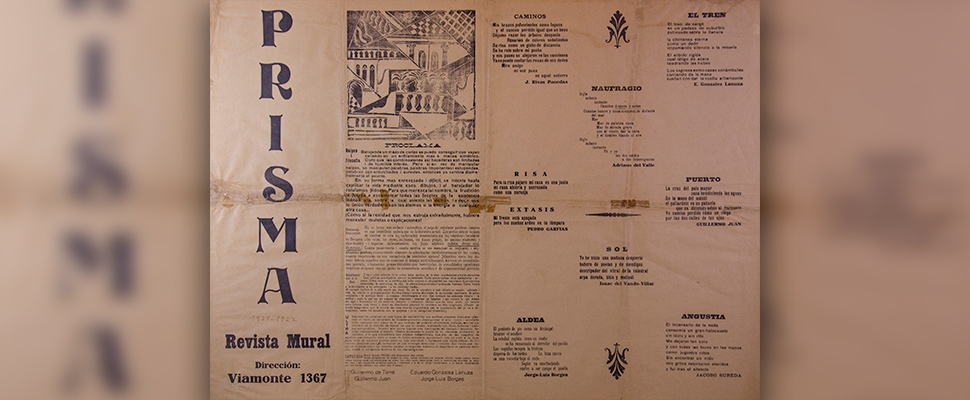Borges works were auctioned in Argentina

EFE
Listen to this article
Leer en español: Subastan en Argentina obras de Borges con intervenciones a mano
A magazine that Jorge Luis Borges dedicated to his compatriot and also novelist Macedonio Fernández was awarded at an auction in Buenos Aires for $ 24,100, while a copy of his book "The language of the Argentines", illustrated by the artist Xul Solar, was It sold for 65,800.
Reproduction courtesy of the auction house Hilario Artes, Letras & Oficios in which a copy of the Prisma-wall magazine of the Argentine writer Jorge Luis Borges was registered. EFE / Hilario Arts, Letters & Crafts
As the Hilario Artes, Letras & Oficios auction house informed Efe on Thursday, the copy of the Prisma wall-magazine was auctioned to an Argentine collector and the book was bought by a bookstore, both on Wednesday night.
Borges (1899-1986), along with his sister Norah, plastic artist; his cousin Guillermo Juan and Eduardo González Lanuza, both writers, created in 1921 Prisma, an unusual publication in full swing of ultraism in Buenos Aires that only had two numbers, in November of that year and in April 1922.
The magazine, illustrated by Norah and prepared with short poems by local authors of the time such as Lanuza, Salvador Reyes, and Guillermo de Torre, papered the streets of Buenos Aires in those early years of the 20s.
Of the two publications that the magazine made, Borges dedicated Fernández the second number with a phrase that, according to the auction house, dictated: "For the unfinished philosopher Macedonio Fernández // inexhaustible thinker giving your slender reflections in La Perla."
Also read: Surprising discovery could change the way industry uses nickel
"With a few (copies) under his arm, Borges approached the La Perla café – a meeting place for intellectuals of the time – and there he talked with Macedonio Fernández and presented him with a dedicated copy," said Hilario Artes, Letras & Crafts
As for the book, in which Borges and Xul Solar (1887-1963) make a critical look at the different forms of speech of Argentines, its particularity is that it was intervened by the writer with drawings in their margins, cross-outs, corrections, and extensions in their texts, for a second edition that never existed, explained from the institution.
Despite the corrections made by Borges, "something happened that made him give up" the idea of reissuing it, to the point "years later he removed it from the collection of his complete works," they added from Hilario.





